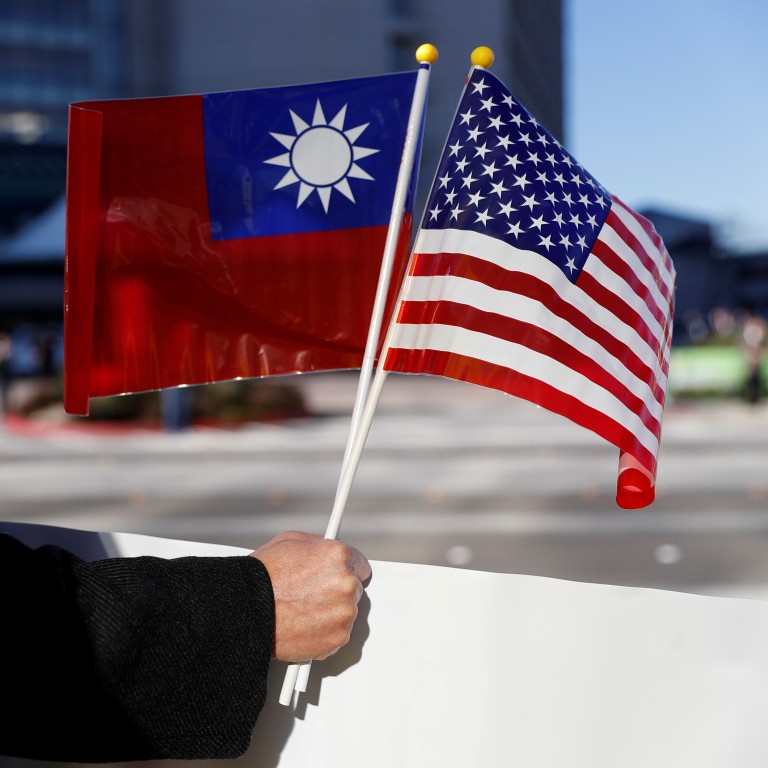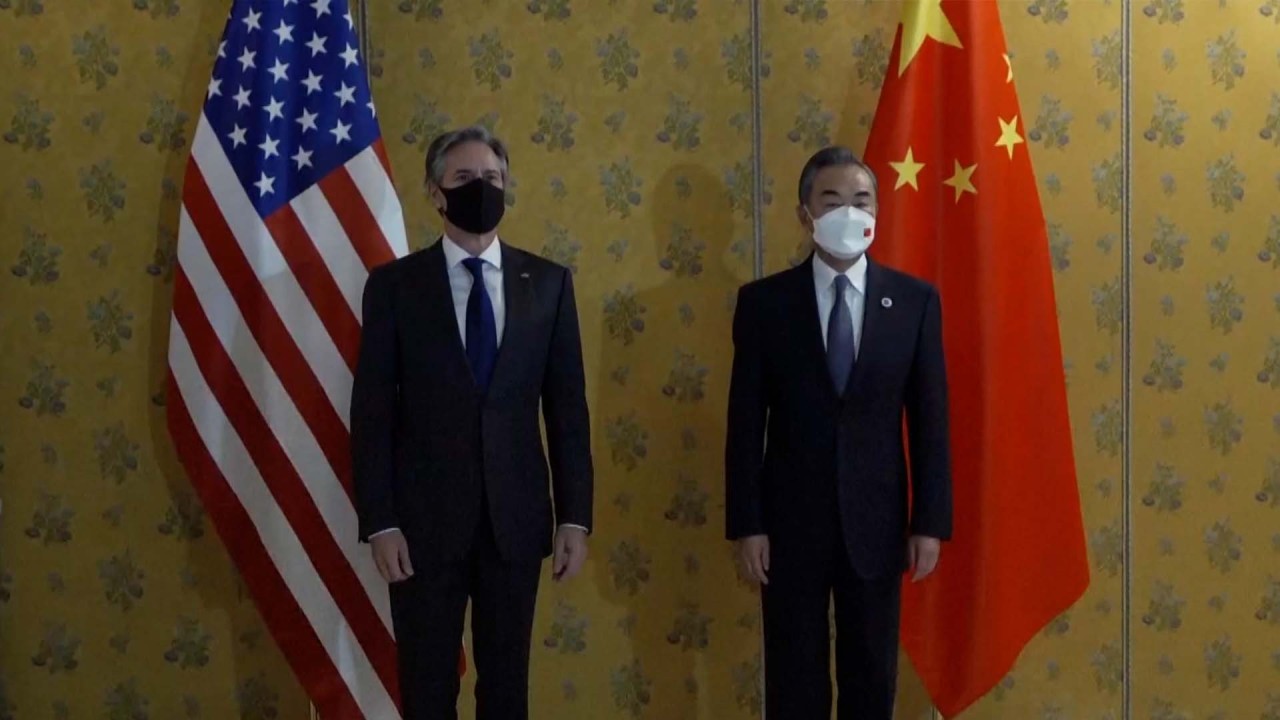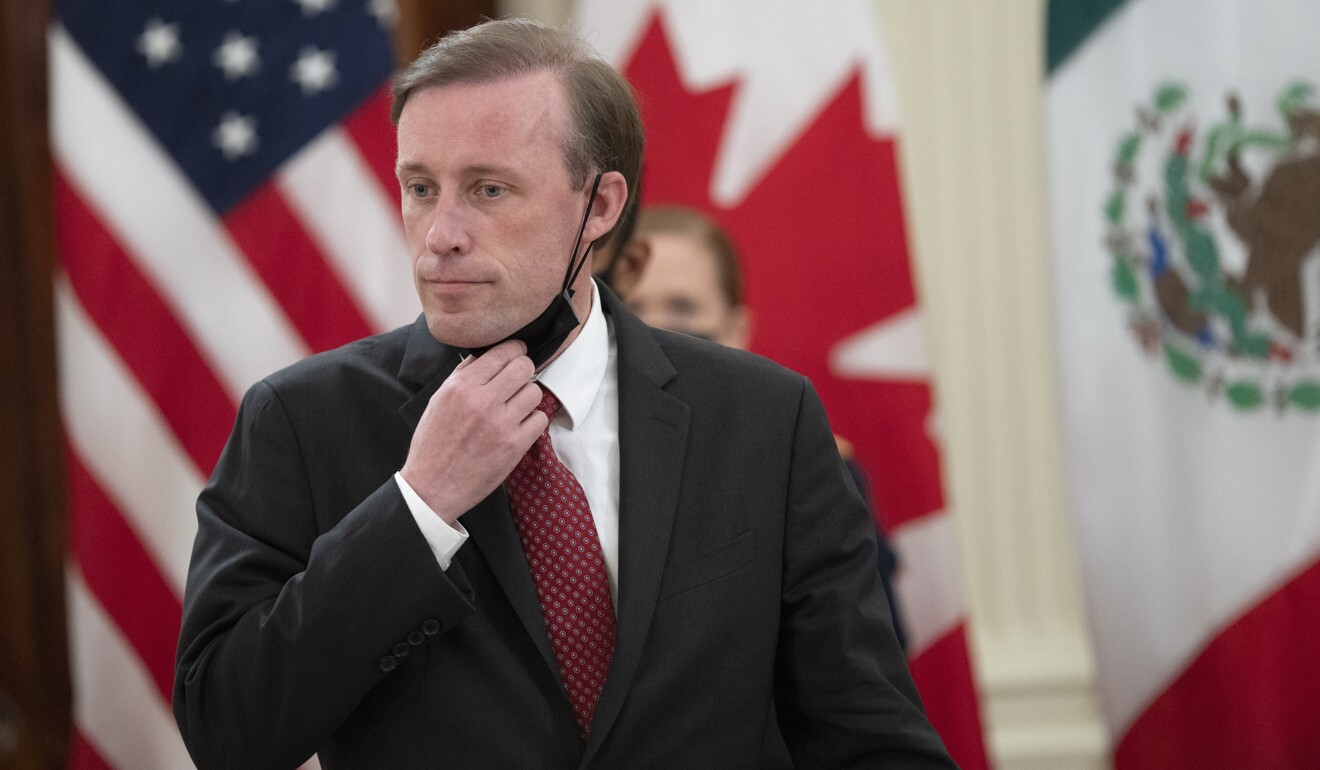
US and Taiwan to hold talks on Monday about forging closer economic ties
- The latest sign that President Joe Biden intends to continue developing closer ties with Taipei despite the rising tensions with Beijing
- It will be the second ‘US-Taiwan Economic Prosperity Partnership Dialogue’, with the first held in the final months of Donald Trump’s presidency
The US and Taiwanese governments will convene a formal dialogue on Monday meant to strengthen commercial and economic cooperation between Washington and Taipei, the State Department announced on Friday, sparking an angry response from Beijing’s US embassy.
“Our partnership is built on strong two-way trade and investment, people-to-people ties and in common defence of freedom and shared democratic values,” the State Department said.
At the first dialogue, held one year ago in the final months of the Donald Trump administration, the two sides signed a five-year memorandum of understanding and vowed to keep forging closer economic ties, but it was unclear at the time if Biden, then the president-elect, would continue to closely embrace Taipei.

01:07
No change to US’ one-China stand on Taiwan, Blinken tells Wang Yi on G20 sidelines in Rome
In April, Biden’s State Department announced a new policy to “encourage” engagement between American and Taiwanese government officials, a move made to bring Washington into compliance with the Taiwan Assurance Act of 2020, which states that these ties “should be crafted with the intent to deepen and expand United States-Taiwan relations”.
The announcement of Monday’s dialogue comes after Biden’s virtual summit with China’s President Xi Jinping, a long-awaited meeting that the two leaders held to address escalating tensions on numerous fronts, with Taiwan emerging as one of the most contentious.
“Taiwan will remain a serious flashpoint because Biden – with strong support and pressure from both parties – will continue to step up military and technology cooperation with Taipei,” Michael Hirson, the Eurasia Group’s Asia head and a former US financial attaché in China, said in a research note published on Friday, just before the State Department’s announcement.
Beijing in no rush to take Taiwan by force, say government advisers
Hirson also said Biden would continue to “internationalise the issue by encouraging allies such as Japan and Nato countries to increase their diplomatic support for Taiwan and to affirm the need for peace and stability across the Taiwan Strait”.
According to a Chinese foreign ministry readout, Xi told Biden that Taiwanese authorities were trying to “rely on the United States for independence”, while others in the US intended to “use Taiwan to control China”.
“Such moves are extremely dangerous, just like playing with fire. Whoever plays with fire will get burned,” Xi was quoted as saying.
National Security Adviser Jake Sullivan said after the summit that “the two leaders spent a good amount of time on the question of Taiwan, and President Biden underscored his commitment to the one-China policy, which is guided by the Taiwan Relations Act, the three joint communiques and the six assurances”.

The communiques are agreements between the US and China that formalised the diplomatic switch and allowed “cultural, commercial and other unofficial relations” between America and Taiwan. The “six assurances” refer to commitments Washington made to Taipei in 1982 to disregard Beijing’s opposition to US arms sales to the island.
The Taiwan Relations Act was signed by president Jimmy Carter shortly after Washington switched official diplomatic relations from Taipei to Beijing in 1979, and authorises the US government to support Taiwan’s defence capabilities.
Beijing views the self-ruled island as its own territory, to be brought under its control by force if necessary, and says it strongly opposes any form of official contact with the government in Taipei.
President Biden said in the virtual meeting with President Xi that the US government is committed to the long-standing One-China policy and does not support “Taiwan independence”.
Taiwan and US set for sensitive dialogue – and reveal the timing in advance
Liu Pengyu, spokesman for China’s embassy in Washington, denounced the upcoming US-Taiwan dialogue as a violation of Biden’s pledges.
“President Biden said in the virtual meeting with President Xi that the US government is committed to the long-standing One-China policy and does not support ‘Taiwan independence’,” Liu said.
He called on the US government to “stop all forms of official exchanges and contacts with Taiwan, stop elevating its relationship with the Taiwan region in any substantive way, so as to avoid serious damage to China-US relations and peace and stability across the Taiwan Strait”.
The State Department said on Friday that it had been held “to advance cooperation on a broad range of economic issues and forge closer economic and commercial ties between the United States and Taiwan”.
The department said Monday’s meeting was being conducted under the auspices of Washington and Taipei’s de facto embassies – the American Institute in Taiwan and the Taipei Economic and Cultural Representative Office.


